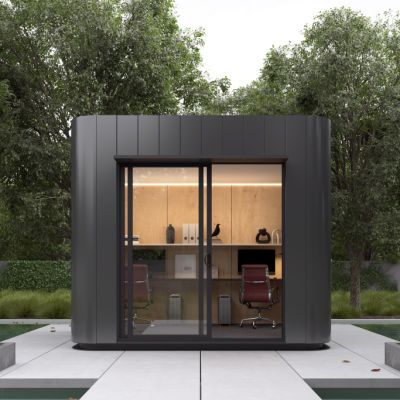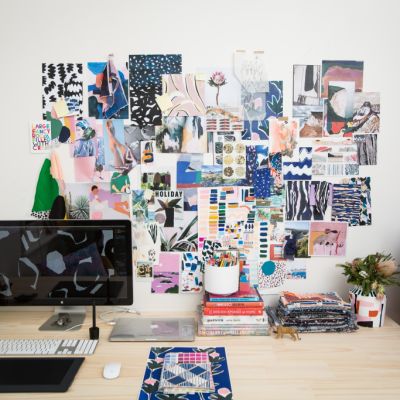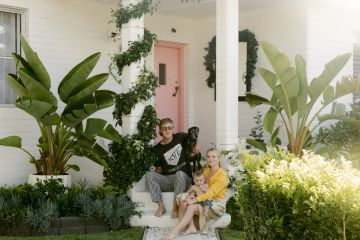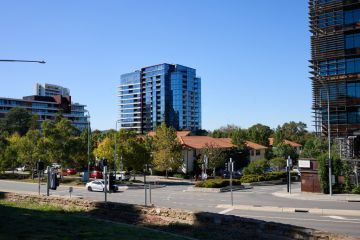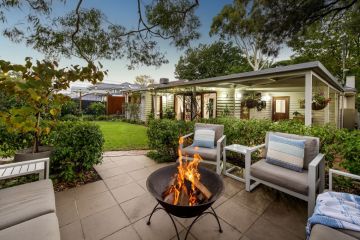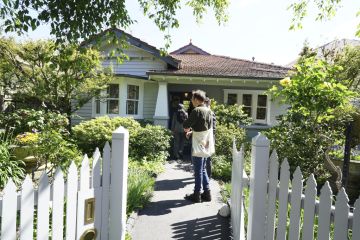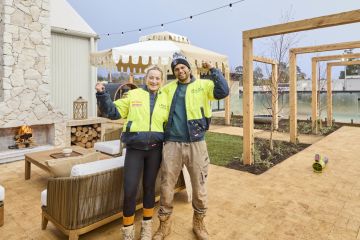These rentable backyard pods are the Airbnb of home offices

It’s being hailed as the Airbnb of work pods, where remote workers now have the convenience of renting a smart desk in someone else’s backyard with no strings attached. The rental service being launched in Australia by a new start-up, Nooka is designed to fit with the pandemic times where working from home takes on a new look.
If the thought of working a few days a week from your lounge room or study isn’t your idea of practical anymore, then Nooka’s solution could be just for you.
The new business will deliver a fully kitted rental pod to your backyard [all you need is the room for it] and you can use it yourself when working or rent it to others on a time clock that suits you. It’s the new face of co-working – but where you do so in a much quieter format.
According to a Boston Consulting Group study in 2020, most Australian workers now want to work from home two weekdays out of every five, with 32 per cent of the Australian working population working from home last year. There’s no doubt that working from home will remain a feature of our everyday life for a while to come.
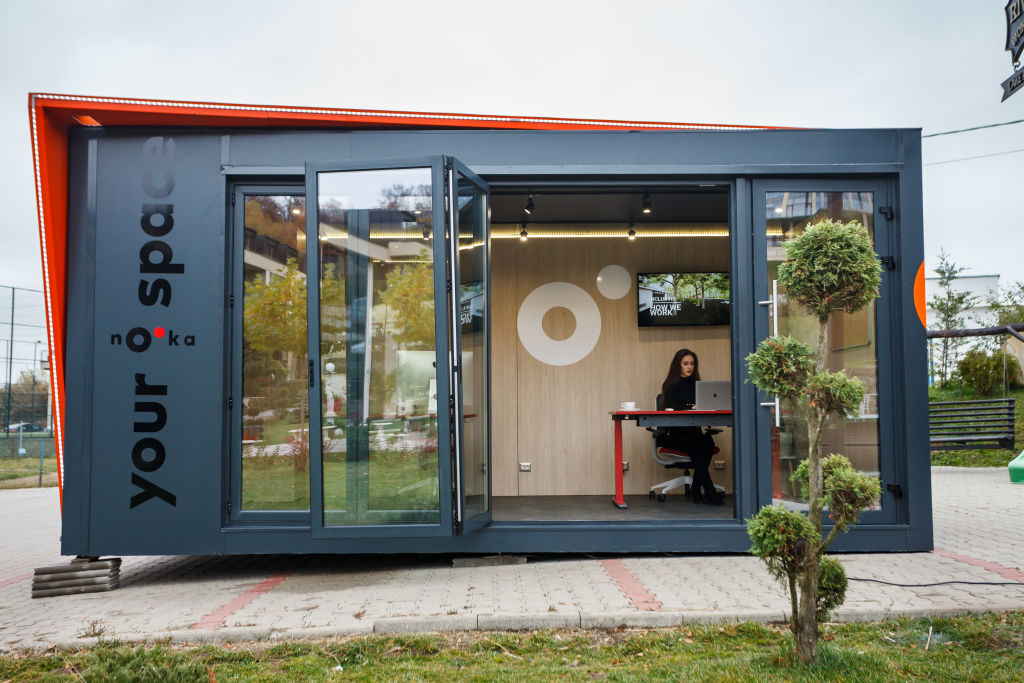
Workers do want to return to their offices in a semi-permanent fashion, but now Nooka gives you a reason to work from someone else’s backyard without the interruption of family members at home and co-workers in a workplace.
According to Nooka CEO Leanne Beesley, the global business is trying to do to for working from home what Uber has done for the transportation industry. They’re thinking outside the square to deliver a pod-shaped one to your door.
The rentable pod is delivered fully decked out with the latest ergonomic furniture, desks and installed Wi-Fi. All you need is to settle in and start working – but more than that, Nooka is also pitching itself as a great way to earn extra dollars from home, too.
You can choose your own colour – orange, yellow or blue – and pay a monthly fee to have it functioning as your remote office. Monthly rentals vary between $362 and $725 depending on the model you choose.
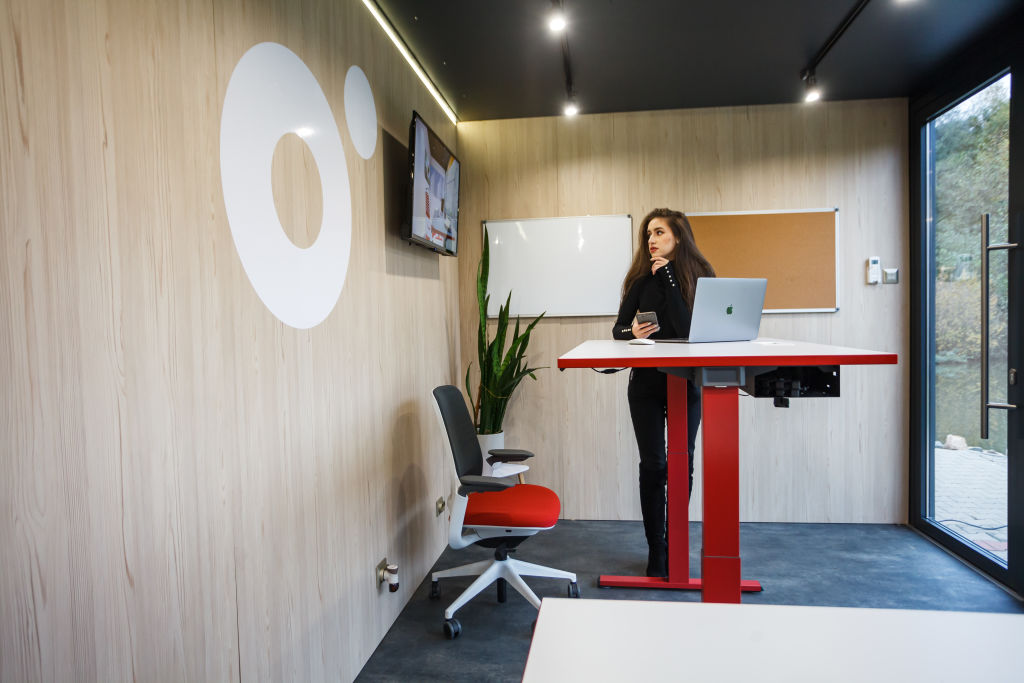
The pods are bright, modern and intended to inspire you to do your best work while a smart lock means you’ll never lose the key.
“The Nooka app will allow people to see which Nookas are available for booking near to their location,” says Beesley. “Nooka hosts can set their own prices and hours of availability too.”
The smart lock feature connects directly to Bluetooth, so there’s no need for the host to stick around to open and close up the Nooka for renters.
“The whole point is to be hands-off. So, it’s not only a way to make extra income it’s also providing a great service to the community,” Beesley says.
“For people who are not able to have their own home office, being able to book a Nooka nearby provides an alternative to working from their kitchen table and can help increase productivity,” she says.
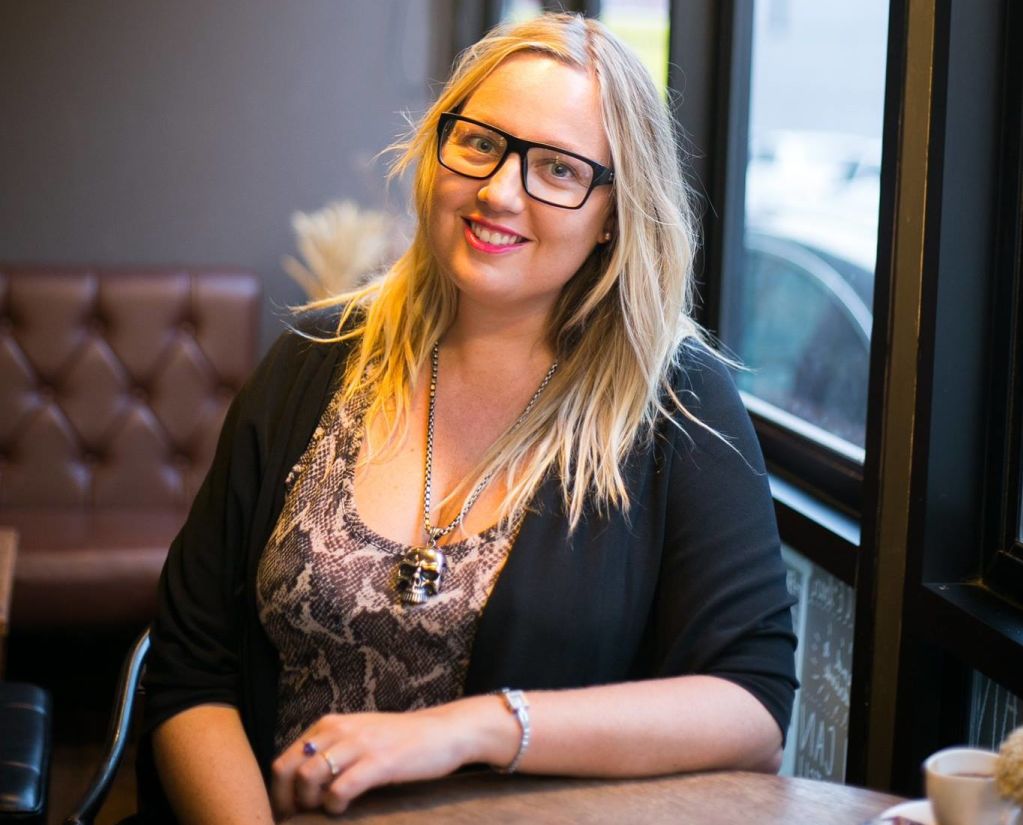
Beesley says the idea to launch Nooka was a pre-COVID-19 concept that has been adapted to fit with the times.
“The pandemic forced us to rethink some of our original features and replace them with smarter alternatives,” Beesley says.
“Our original prototype had a regular airconditioning unit with a typical remote control, but we decided to replace this with a smart heating and cooling system that is controlled via the Nooka mobile app on your own phone instead,” says Beesley.
“We also decided to go with UV-C lighting that actually disinfects surfaces and air, with studies indicating it can inactivate coronaviruses within minutes.”
Beesley is one of five co-founders helping to roll out the Nooka experience from Europe to Australia. She comes from a problem-solving background – think co-working spaces before they became a thing – and now moving into the new normal where working from home isn’t as ridiculous as it once may have seemed.
“We felt that people shouldn’t have to choose between the convenience of working from home and the productive environment of a modern office space, so we looked for ways to bring the office to them,” says Beesley who is in the middle of finalising Aussie distribution bases.
“We saw a gap in the market for micro workspaces in residential neighbourhoods, and now we’re calling this new category the proximity office space.”
We thought you might like
States
Capital Cities
Capital Cities - Rentals
Popular Areas
Allhomes
More
